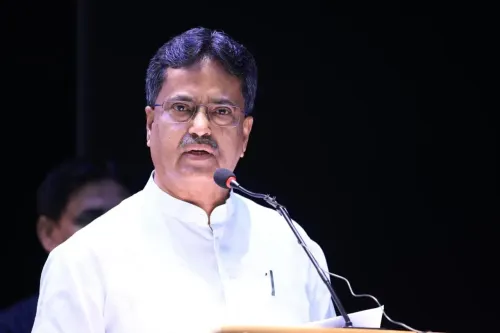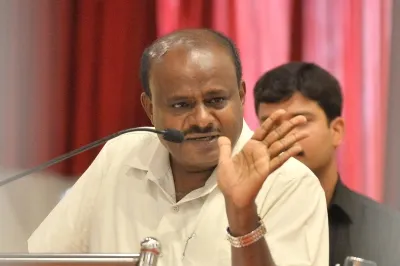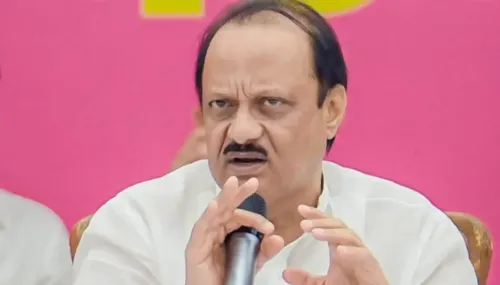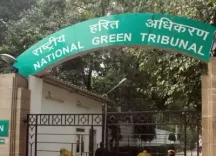Did Congress Choose Inaction Over Action Against LeT HQ Post 26/11?
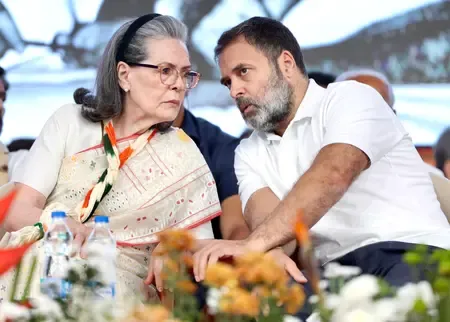
Synopsis
Key Takeaways
- BJP accuses Congress of inaction post 26/11.
- Pranab Mukherjee favored retaliatory action.
- Shivshankar Menon's book highlights government discussions.
- Historical patterns of compromise are cited.
- Indira Gandhi's nuclear technology proposal raised eyebrows.
New Delhi, May 29 (NationPress) The BJP has taken a strong stance against the Congress party, alleging that it has consistently compromised the nation's security. This includes the events surrounding the 26/11 terror attack, during which the then External Affairs Minister Pranab Mukherjee called for action, but Sonia Gandhi and Rahul Gandhi reportedly withheld permission.
The national spokesperson for the BJP, Pradeep Bhandari, stated on X that the Congress had an opportunity to strike the Lashkar-e-Taiba (LeT) headquarters located in Muridke, Pakistan, following the Mumbai terror attacks, but chose not to act due to the lack of support from Sonia and Rahul Gandhi.
To back up his claims, Bhandari referenced excerpts from the book 'Choices: Inside The Making Of India’s Foreign Policy', authored by former foreign secretary Shivshankar Menon. Menon recounts that during and after the attack, various informal discussions and governmental meetings evaluated potential responses. The then National Security Adviser, M.K. Narayanan, coordinated a review of military options with political leaders, while military chiefs expressed their perspectives to the Prime Minister.
In his book, Menon notes that Pranab Mukherjee was in favor of a retaliatory response. He stated, “As foreign secretary, I believed it was crucial to assess the external implications and urged both Pranab Mukherjee and Prime Minister Manmohan Singh to retaliate visibly to deter future attacks, for our international credibility and to address public sentiment. Pakistan had crossed a line, requiring more than a standard response. I preferred overt action against the LeT headquarters in Muridke or the LeT camps in Pakistan-occupied Kashmir, along with covert actions against their sponsors, the ISI. Mukherjee agreed and publicly stated that all options were on the table.”
Bhandari characterized the inaction as a betrayal of the nation, asserting, “Despite Pranab Mukherjee’s urgings, the UPA led by Sonia and Rahul Gandhi chose not to act — a profound betrayal of national sentiment.”
The BJP spokesperson provided numerous examples where previous governments and the Congress party seemed to favor Pakistan. He claimed that from Nehru to Rahul, the Gandhi family's history reflects a pattern of negligence and compromise regarding India's sovereignty.
“The legacy of the Gandhi-Vadra family is one of repeated compromises regarding India's national security,” Bhandari stated.
He highlighted instances such as Indira Gandhi being open to sharing nuclear technology with Pakistan, just months after India's first nuclear test, “Smiling Buddha”, in 1974. “Why empower a nation that breeds terrorism?” he questioned.
He continued to criticize Rajiv Gandhi for promoting “nuclear disarmament” at a time when China was nuclear-armed and Pakistan was amassing weapons, thereby jeopardizing India's deterrent capabilities. Jawaharlal Nehru also faced criticism for blocking India’s entry into the Nuclear Suppliers Group (NSG), which limited access to essential nuclear resources and international collaboration.

